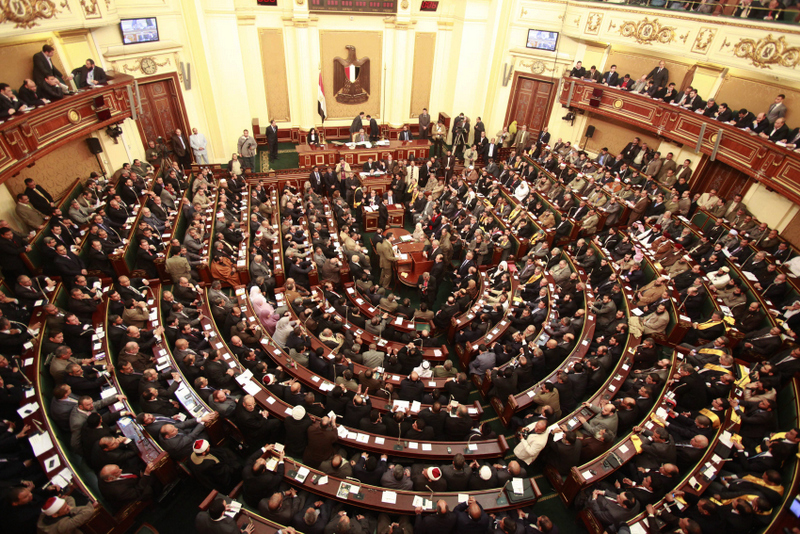CAIRO: At least two opposition parties announced Tuesday they will either boycott, or refrain from participating in, next month s Shoura Council (Upper House of Parliament) by-elections, in protest of what party officials say was the expected large scale vote rigging.
Secretary general of the Al Wafd Party, Mounir Fakhry Abdel Nour, told The Daily Star Egypt that while Al Wafd was not boycotting the elections, the liberal right party will not be participating. The elections are to renew membership of half the members of the 264 seat consultative body and are scheduled to take place in the second week of June.
The most critical of these amendments, opposed by Al Wafd, was the removal of judicial supervision of the polling stations, this will open the door wide open to vote rigging.
Abdel Nour added that Al Wafd is also going through a restructuring stage, making it unfeasible to participate in the upcoming elections.
There is also the fact that, apart from a single isolated exception, no opposition candidates have ever won in the upper house elections since the formation of the Shoura Council in the late 1980s. The only time this did happen was when the government backed the opposition candidate affiliated with the worker s unions against the Islamist candidate in Helwan constituency, he said.
Leaving the door open for his party s participation, he stressed that the party will, nevertheless, back independent candidates whose electoral platforms are in line with the party s principals.
For his part, Secretary General of the Islamist Labor Party, Magdy Hussein, said his party decided to boycott the polls altogether, citing similar reasons. He lamented what he described as the futility of pushing for political change through the electoral process in Egypt.
Elections as a means of introducing change has become a [dead end] . what we are doing here in Egypt is wasting people s time, he lashed out.
Hussein added that the Islamist Labor Part is currently involved in a campaign to collect signatures against the recently passed constitutional amendments.
Party cadres have succeeded in collecting 102,000 signatures so far, to protest the amendments.
Voters passed the constitutional amendments in a low turnout vote last March, introducing some controversial changes, including the shrinking of judicial supervision over ballots.
The largest – yet officially banned – opposition block, the Muslim Brotherhood, announced through a number of its members of parliament, who were elected as independents, that it will nominate 20 candidates in the June elections.
Three independent parliamentarians affiliated with the banned group were arrested last week in Sharqiya province as they met to discuss their plans to run in the elections. But they were released the next day.
Earlier this week, the People s Assembly passed amendments to the political rights law ahead of June s elections.
The controversial law introduced stipulations that legislative elections are to be carried out in a single day. It also stated that an 11-member Higher Electoral Committee that will oversee the polling process.
Seven out of the 11 members would be members of the judiciary, while the remaining four will be members of the public chosen by both houses of parliament.
The Higher Electoral Committee replaces judicial supervision of elections, a move vehemently contested by the opposition who say that this could make vote rigging easier.

